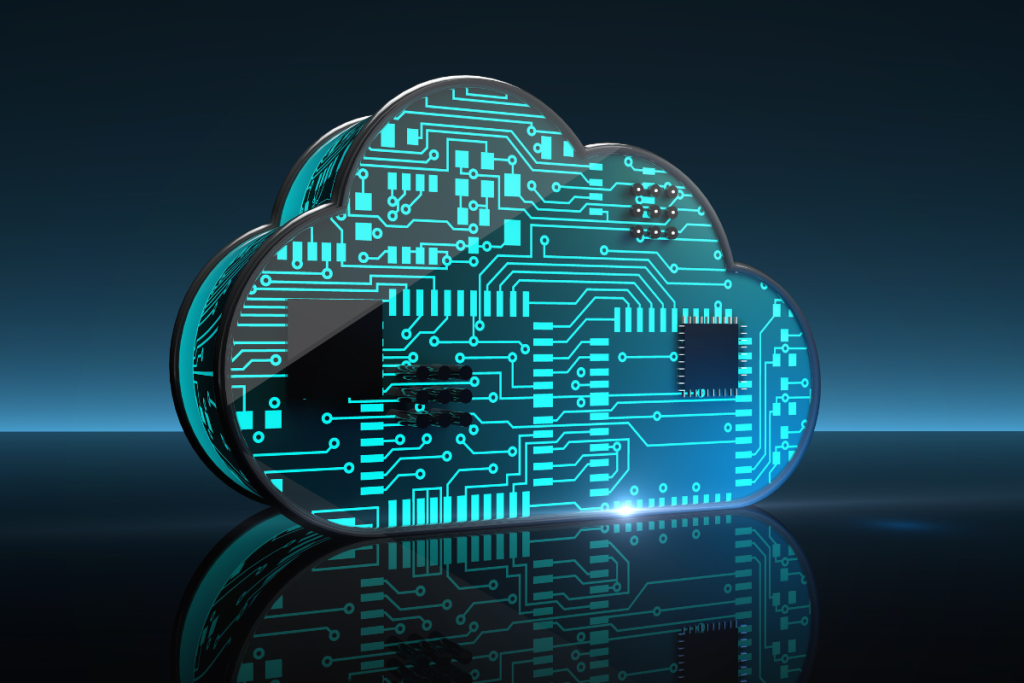Blockchain with Data Integrity and Security
In today’s digital landscape, where every bit and byte hold immense value, safeguarding data has become a necessity. Imagine a world where your personal information is as precious as gold, and protecting it is paramount and of utmost importance. Where most systems or tools might seem useless, blockchain emerges as a trusted guardian. With its ingenious design and decentralized structure, blockchain weaves a shield of security, combining innovation and resilience to keep off threats of cyber intrusions.
What Blockchain does different?

1) Decentralizes Project Data Security: The foundation of decentralized project data security is blockchain. Imagine a network of nodes where private project information may flow freely and safely. Without a single stronghold to compromise, data seeks safety in the distributed ledger, where it is protected from the dangers of centralized flaws.
2) Empowers Users with Self-Sovereign Identity: Self-Sovereign Identity (SSI) is blockchain’s strongest suit when it comes to identity protection. People have complete control over their digital identities here. The limitations of conventional identification systems are expanded through cryptographic keys and decentralized verification, providing a strong defense against identity theft assaults.
3) Transparent Auditing Reduces Fraud: Blockchain advances as a transparent barrier against fraud. All transactions made on the blockchain are irreversible. Because of this unwavering transparency, there is no room for fraudulent duties to come out.
How Blockchain is monitoring and keeping our data secure?

1) Immutable Data Storage
Immutability is a key component of blockchain technology, which means that once data is stored there, it cannot be changed or removed without the network’s participants’ consent. This feature offers a tamper-proof record of transactions or information, ensuring dataset correctness. Blockchain technology may be used by businesses to safely store important data without running the risk of illegal changes, improving data integrity.
2) Decentralized Validation
A copy of the complete blockchain ledger is kept on file by each node in the decentralized network of nodes that powers blockchain technology. Due to its decentralized architecture, data may be validated consistently and reliably across many nodes. A consensus method, like proof of work or proof of stake, is used by network participants to validate new data uploaded to the blockchain. By confirming the accuracy of the data and eliminating fraud, this validation procedure improves data integrity.
3) Smart Contracts
Smart Contracts are self-executing agreements that have the terms explicitly stated in computer code. When requirements are satisfied, they automatically enforce and carry out predetermined actions. Organizations may automate data validation and verification procedures and build trust in analytical results by utilizing blockchain’s smart contract feature. Stakeholder trust is increased by smart contracts, which guarantee correctness and openness in agreements and transactions.
4) Immutable Audit Trails
Blockchain technology offers an audit trail of data transactions that is both transparent and unchangeable, allowing companies to trace the origin of data and confirm its legitimacy. An unchangeable chain of custody is created when each transaction on the blockchain is timestamped and cryptographically connected to earlier transactions. By enabling auditors or regulators to track the history of data and spot any inconsistencies or abnormalities, this feature improves data integrity.
5) Data Attestation and Certification
Blockchain-based platforms facilitate services for data attestation and certification, allowing businesses to timestamp and cryptographically sign datasets to demonstrate the integrity and authenticity of the information. Through the integration of data certificates with the blockchain, entities can foster confidence in the precision and caliber of their data. This certification procedure improves data integrity and makes regulatory compliance easier.
6) Supply Chain Transparency
By enabling visible and traceable supply chain networks, blockchain technology is being utilized to improve data security and integrity in sectors including logistics and supply chain management. Organizations may reduce the danger of counterfeit goods, maintain the integrity of supply chain data, and foster stakeholder confidence by logging every transaction and movement of goods on the blockchain.
Conclusion
In the world of data security, where threats lurk at every digital corner, blockchain emerges as the guardian angel of integrity. Its legacy, etched in the annals of innovation, paints a picture of resilience and fortitude against the relentless tide of cyber adversaries. As we navigate the turbulent seas of the digital realm, let us entrust our data to the unwavering protection of blockchain, where innovation and security converge to forge a brighter, safer future.








